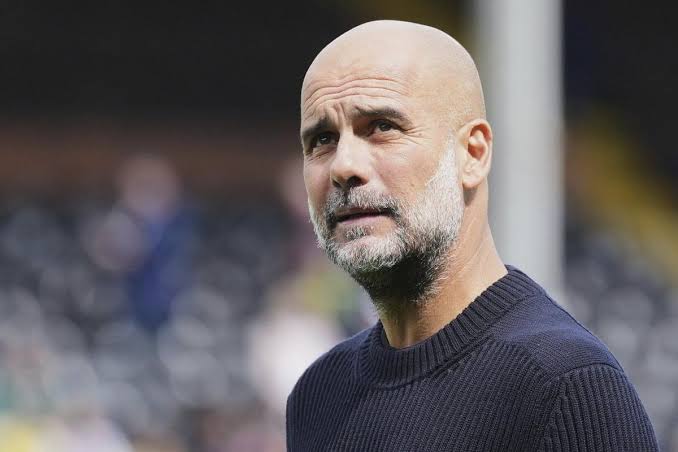After nearly a decade of unrivaled success with Manchester City, Pep Guardiola has confirmed that he intends to leave football management once his contract at the Etihad Stadium concludes. In a revealing interview with GQ España, Guardiola made his intentions clear, saying:
“I know that after this stage with Manchester City I’m going to stop, that’s for sure, it’s decided, more than decided. I’m going to leave after this stage with Manchester City, because I need to stop and focus on myself, on my body…”
This statement marks the strongest indication yet that Guardiola, one of football’s most successful and influential managers, is preparing to walk away from a profession that has dominated his life for more than two decades. Though he did not provide a specific end date, the tone of the interview — which was personal, philosophical, and at times emotional — highlights the immense toll that managing at the highest level has taken on the Catalan coach.
The Psychological and Physical Toll of Management
Guardiola opened up about the psychological pressure and physical strain of his job, revealing how coaching has become all-consuming:
“The job of a coach is 24/7. If not, you won’t get through it. The pressure on your shoulders is enormous… A friend of mine once told me I have three states as a person: euphoric, depressed, and absent. So the point is to try to stay in the middle of these.”
While still deeply passionate about the game, Guardiola admitted that the physical toll had left him feeling aged beyond his years:
“As I am now, I’m 75 years old [laughs]. I’m a wreck, everything hurts right now…”
Despite the exhaustion, Guardiola’s love for football remains unwavering, and he expressed an appreciation for the imperfections that come with the sport. He remarked:
“I’m delighted to have failed. I love failures. In this society where everything has to be perfect… yes, I’m sad, I fail, and I lose. So? Name one who doesn’t.”
Embracing Criticism and Scrutiny
As one of the most scrutinized figures in football, Guardiola shared his thoughts on the intense criticism managers face:
“There’s no profession — architect, teacher, doctor, journalist — that 60,000 people want you to lose your job. But our profession is so well-paid we can accept this… If things go wrong, people comment that. Why? Because it’s very emotional, pure adrenaline. It’s my team against the neighbour’s team. I’m going to laugh at them if I win, they laugh at me if my team loses.”
Guardiola, however, does not shy away from criticism. He has learned to embrace the attention, viewing it as a privilege:
“In any specialty, if you were lucky enough to be observed, judged, admired, praised, criticised the same way, you’d be lucky to have the luck we have in our profession.”
Reflecting on Manchester City’s Recent Struggles
Guardiola did not shy away from discussing the struggles of his Manchester City team, particularly after a season that did not live up to expectations. He admitted:
“When you win six Premier Leagues, there comes a time when you go downhill. It’s human nature. We probably should’ve moved more players… But it’s very easy to say after the fact.”
He acknowledged the impact of injuries, which played a major role in the team’s underwhelming season:
“Players got injured a lot. And you ask: Why have they been getting injured so much when they didn’t before? Because the focus is no longer on what you have to do. When the focus is no longer on what you have to do, you get injured more.”
Despite this, Guardiola believes that the challenges have been valuable:
“It puts you in your place… Speaking on behalf of Manchester City, it’s been very healthy for us. Success confuses you.”
The Pull of Personal Freedom
Though Guardiola remains fiercely competitive, his desire for personal freedom and a life away from the constant demands of coaching is growing stronger. He confessed:
“There will come a day when I’ll say enough, I no longer feel like dealing with players, tactics, press conferences every three days, my boss… I’ll say: Now I’m my own boss, I no longer have to set the alarm, I can decide my own life. One day I’ll stop and come back later, or not…”
Even as he contemplates his future, Guardiola’s motivation remains steadfast:
“The important thing is to give your all, do it well. I haven’t given up on that… Next year I’m going to do better. That’s what it’s all about.”
A Legacy That Will Be Hard to Replicate
Guardiola’s potential departure would mark the end of one of the most influential managerial reigns in modern football. His time at Manchester City has been nothing short of transformative, turning the club into a dominant force in English football and winning numerous Premier League titles, domestic cups, and Champions League trophies.
Whether Guardiola takes a sabbatical, retires permanently, or eventually returns to management, his impact on the sport — and on Manchester City in particular — will be impossible to replicate. His departure from the Etihad will undoubtedly leave a void, but it is clear that Guardiola will leave a legacy that will continue to inspire future generations of players and managers alike.


